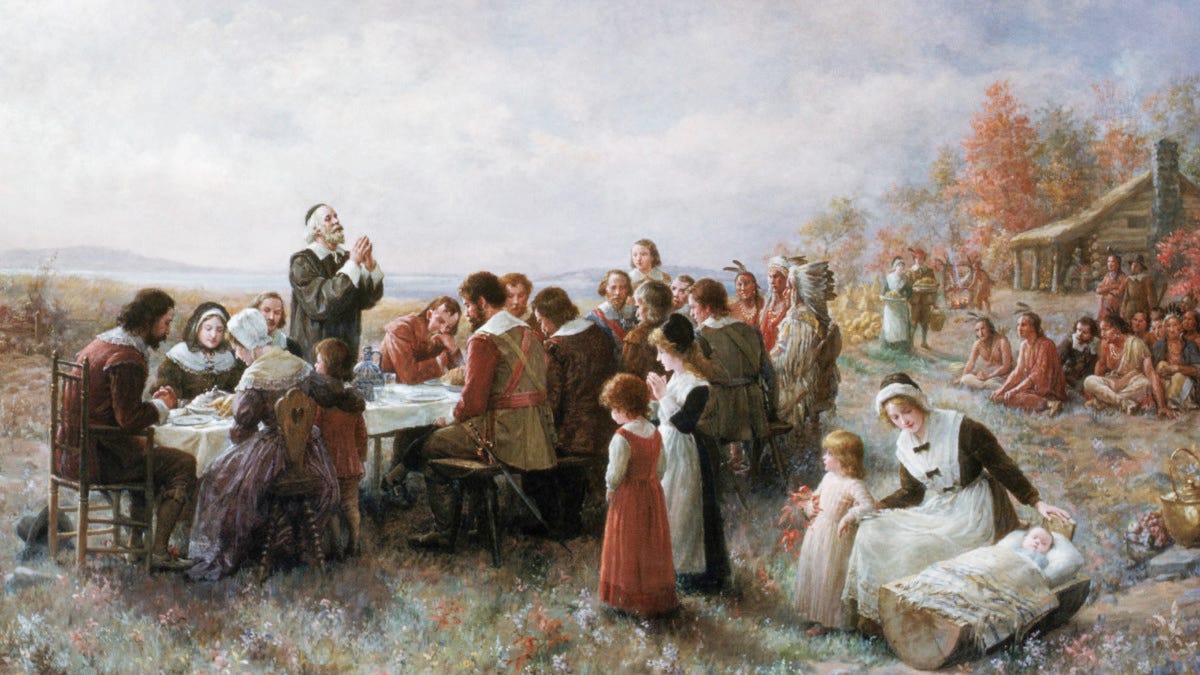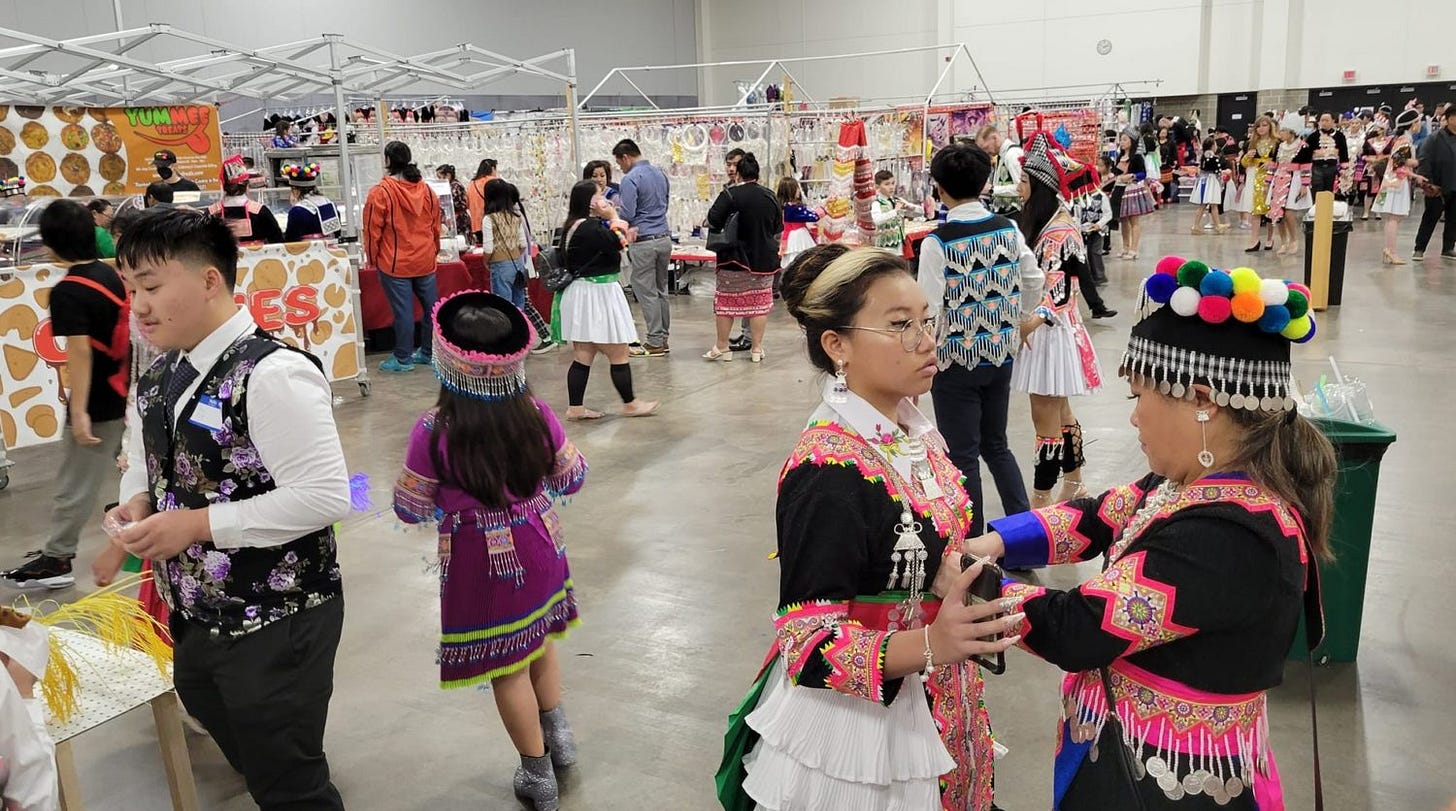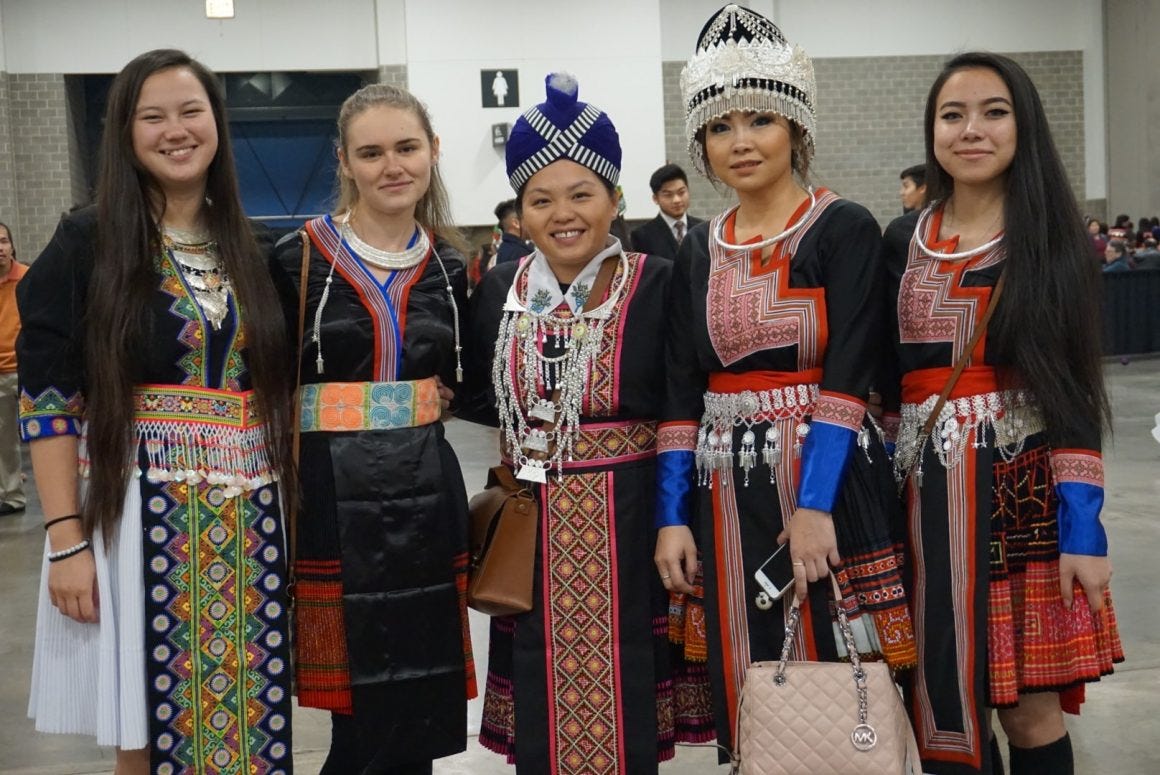Turkey Day
In just under an hour, I will be enjoying Thanksgiving dinner with my family, as I do almost every year. So far in my life, my family has not lost any immediate relatives besides my parents’ parents (when I was quite young, so it was naturally much more painful for them than for me.) I feel blessed to have my whole family with me, healthy, happy, and relatively well-to-do. It’s likely my parents become grandparents within this upcoming year. The house is festive.
We’re an orthodox Hindu family, so, no turkey here—though we do have roasted corn and pumpkin pie (with shrikhand à la mode) and ‘mulled’ cider (boiled with saffron) accompanying what is basically indistinguishable otherwise from the food my Mom normally makes. There will be no Thanksgiving tag football game with a horde of relatives. As you may have guessed, I am oftentimes the stock character ‘Drunk Uncle’ who begins talking politics at the dinner table.
I’ve always liked Thanksgiving, among the holidays. We’re not a Christian family, and despite a few years when my dad got a tree but none of us were really that into it, Christmas has never really figured big into our lives (though, I will say, I enjoy it and wish it were less of a secularized/commercial time.) The fourth of July is great too, but as the US polity has come to stood for less that a thinking person can take pride in and has become more antagonistic to ‘the good’ of any traditionalist, that whole season seems steeped in double digit IQ jingoism and gluttony and shrieking progressives sermonizing about democracy.
No, it’s Thanksgiving I love—though it of course hasn’t escaped ‘politicization’ nor commercialization, either—precisely because it defies those two tendencies, precisely because its deepest resonance as a holiday is inaccessible to me, in a way contrary to what’s being done to Christmas, ever more like a ‘Winter Holiday to end Q4’, contrary to the new civic religion soaking the Fourth of July. It’s simply not for everyone—it’s an American holiday, a holiday for Americans.
Land of the pilgrims' pride
One of the hallmarks of the modern US is that nothing can really be taken too seriously, all is ‘poisoned with irony’, or riddled with commercialization. There’s little in our public life that is treated with real dignity, and our private lives, into which the internet ever more intrudes, generally don’t have much in the way of solemnity. When people try to do these things, it’s looked at as insincere or pathetic.
There are few respites from this; religious life has declined immensely in the Western world. Importantly, it’s in the various ethnic holidays of non-Americans who came to the US, with varying degrees of besmirchment by assimilation, that you find something approaching the celebration of something real that doesn’t just imply discounts and drinking. Looking at the children of the relocated Hmong celebrating their Lunar New Year one sees an ethnic, parochial, insular, inaccessible, and potentially meaningful remembrance of roots.
While there is something distinctly tragic about small Hmong children who will likely lose the language, if they haven’t already, performing ‘traditional dances’ in 'traditional costume' in a gymnasium for onlookers buying tickets who themselves have zero connection to being Hmong because they aren’t Hmong, the Hmong remain themselves. Likely, you’ve never been to nor will be to one of those celebrations. It probably doesn’t resonate with you at all. But that’s because you’re not Hmong. If you were Hmong, you could of course celebrate the Hmong Lunar New year in a truly fulfilling way. It would actually mean something to you—it’d be your New Year.
Could you become Hmong? Many of the Hmong have become US citizens. Plenty of them have become Christians. Some of them are even Seventh Day Adventists:
Personally, I don’t think you can become Hmong. I think even if the religion of the Hmong changes, and even if there are pockets in Madison, WI where all the Protestant Churches are actually Hmong Churches, and there are blond haired white American women from Wisconsin wearing paj ntaub tunics, who possibly learn some of the language, they have not become one of the Hmong. Sorry!
Consider the pathetic state of St. Patrick’s Day in the US, where everyone can be ‘Irish’ so long as they—apparently—maximally act like a hooligan while drinking.
Is St. Patrick still so beloved as a Saint that his feast day means a lot to Catholics? It sure doesn’t seem like it. Every year, there’s basically little more to the celebration’s season than loutish, drunk, belligerent debauchery, albeit clothed in green with clovers (or rather, pictures of clovers.) But perhaps this is what was always destined to happen to St. Patrick’s Day; if someone isn’t themselves a faithful Irish-Catholic, what’s the holiday even supposed to be about anyway?
That’s the reality of a holiday—literally, meaning a holy day—the real differentiators of culture have always been religion and blood, and the two have always been mixed up together; whom one marries and the traditions of ones children, and the identity of a people and the traditions that mark them. These are things that both identify and perpetuate the existence of specific peoples. Without that remembrance, a holiday is just vacation time or an excuse for discounts. For many people Thanksgiving simply can’t be fully resonant, while for others—Americans—I think it should be the most seriously taken holiday.
American Passover
I think Thanksgiving is the quintessential ethnic American holiday. Like the Jewish holiday of Passover celebrating the escape from Egypt and enduring struggle, Thanksgiving is ultimately about a people’s survival in a new land against great difficulties, giving thanks to Providence for their eventual prosperity. In fact the practice of thanks-giving and the timing of the harvest festival is not unique. It is simply a feature of Christendom, the very same Christendom which the Puritan settlers of New England and beyond came from. That’s the real heritage of America. That collection of settlers without whom there simply is no America. Are they English? Irish? German? Dutch? One quarter Cajun and part Cherokee by family lore? Whatever the mix may be, today you’d just call them ‘White’. They’re white, alright, but they’re not like Europeans (also white); people with a history and a civilization existing many other places. Even the English in England, a nation of composition themselves, have a history going back to and even further before the Romans build the city of Londinium.
Americans begin with Plymouth Rock, named for a port in Devon, England where they broke off from Europe, and stopped coming here before the Civil War. They are orphans on the world stage—even the Irish-descended Americans, whom even today can (and do) trace their lineage to people of their own stock with relations revived and kept up over the internet and telephone, have something they don’t. The WASP and his family, a much larger people than the ‘WASP elite’, simply are America. Alongside them, we have all become a little distant from our ancestries and far off native-lands. With them, we all lay some kind of claim to this country, in our accomplishments and contributions.
Without them, nothing that we know of America could exist.
Their foodstuffs of survival were pumpkin, maize corn and squash and beans. Their religion was Protestantism and for a very long time they had a paradise of Dissenter religion in the New World. The first of them born here was little Virginia Dare in 1587. Their first war of survival—the first war they survived (Dare’s colony, Roanoke, was lost)—was against the Amerindian Chieftain Metacom, the Wampanoag who had himself once been called “Phillip” because of his own tribe’s familiarity and good relations with the Mayflower Pilgrims.
Ever since, Americans have spoken English—their English, not the tongue of England, certainly not ‘the King’s’ but an English that would come to be an American version of the language. The American boy replaced his knights errant with cowboys, who would fight Indians, or perhaps cops and robbers. An entire people began to drift away from Chaucer and double down on Cotton Mather, and William Byrd. They would survive those hard winters in the New England they settled to see—and cause—the fall of global empires, from across the sea. Where their older civilizational cousins marked out the Danube and Rhine, for them the marches and valleys of their home would be called by the names of hostile tribes’ vanquished tongues, Narragansett and Mississippi.
How I observe Thanksgiving, and how I hope you will, too
I think every family whose origins trace back to before the Revolution know how much this holiday means. But if you are like myself, someone simply fond of that heritage nation of Americans, happy for all the fortunes and opportunities their struggles and bravery and calamity and toil have produced, try to make a full day of time before Thanksgiving to read about the early settlement of America. Read about the Scrooby Congregationalists, and their journey to Leiden, read about the ships Swiftsure and Speedwell, and Mayflower. Fast for this period and don’t treat yourself to modern heating or electricity. Rather than shop for deals or visit with many people, be with family (maybe you can persuade them to join you in your abstention from food and dedication to history reading—maybe not) as early as possible, and stay as long as you can after. Spend time in prayer and reflect on how brutal living in early America was, how hard severing all relations must have been. For all those things Americans have endured, resulting in the plenty you have—Give Thanks!






![Green Eggs and Hammered! St. Patricks Day Bar Crawl! [03/10/18] Green Eggs and Hammered! St. Patricks Day Bar Crawl! [03/10/18]](https://substackcdn.com/image/fetch/$s_!8alw!,w_1456,c_limit,f_auto,q_auto:good,fl_progressive:steep/https%3A%2F%2Fbucketeer-e05bbc84-baa3-437e-9518-adb32be77984.s3.amazonaws.com%2Fpublic%2Fimages%2Fdac6ac34-a731-4bd2-8804-6f13857fdc59_780x367.png)
